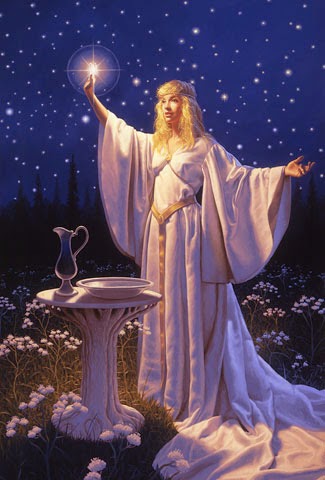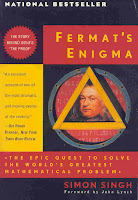Youngblood: The Realism of the Rings
Being a commentary on The Lord of the Rings. A portion of this article appeared in the Young Blood section of The Philippine Daily Inquirer on January 1, 2004 under the title: Lord of the Rings: Not Just Fantasy.
"Above all shadows rides the Sun.”-J.R.R. Tolkien, The Lord of the Rings
THE EPIC TRILOGY The Lord of the Rings will draw to a close with the showing of its last segment, The Return of the King. The past two installments have left the viewers fascinated and terrified with the discovery of realms beautiful and dreadful, characters admirable and detestable, tales delightful and mournful, set in a land called Middle Earth.
Fantasy and Reality
Fantasy, escape from reality, many would say. But this is not how J.R.R. Tolkien, the author of this epic trilogy, envisioned it to be. Tolkien saw fantasy as a plunge into reality rather than an escape from it. Fantasy provides the writer a greater degree of freedom to emphasize certain aspects of truth.
There are some who suggest that The Lord of the Rings is an allegory, either biblical or historical. Tolkien rejected this idea. He wrote in his foreword to The Lord of the Rings: “I much prefer history, true or feigned, with its varied applicability to the thought and experience of readers. I think that may confuse ‘applicability’ with ‘allegory’; but the one resides in the freedom of the reader and the other in the purposed domination of the author.” Allegory for Tolkien is a crude form of literature. He is more concerned about history and its applicability; in other words, about the truth and its application in life.
This is what we discover in The Lord of the Rings. The book contains truths about man, his end, and his quest to reach that end. It conveys realities that you and I encounter in real life. The author would not be happy with a superficial treatment of his work. The readers have to uncover the realities present in the book and to apply them in their lives. This is what I now dare to undertake.
Existence of Evil
The Lord of the Rings tells about the quest of the free peoples of Middle Earth to overthrow the Dark Lord Sauron by destroying the One Ring that will allow him to take control of all the lands and inhabitants of Middle Earth. Sauron, his One Ring, and his dwelling place Mordor, are forms of evil. So are the Balrog, the Ringwraiths, the Orcs, the Uruk-hai and Saruman. These are the evil elements that Frodo and the rest of the protagonists in the story have to contend with.
In the world we live in, we also find evil in its many forms. War, poverty, and suffering are physical evils that are difficult to understand. But even more difficult to understand are moral evils. Why is there too little respect for human life, the dignity of the person, and the sacredness of sex? Where now are the models of love, justice and purity? Moral evil, sin, is the foundation of all evils. Poverty, war, and suffering exist because Man has sinned, and continues to sin.
Frodo encountered different forms of evil in the story, including Gollum, a ring bearer once, who had succumbed to the evil spell of the One Ring. He asks Gandalf why his uncle Bilbo once spared the life of Gollum: “It’s a pity Bilbo didn’t kill him when he had the chance.” Gandalf replies, “…Many that live deserve death. Some that die deserve life. Can you give it to them, Frodo? Do not be too eager to deal out death in judgment. Even the very wise cannot see all ends.”
“If God exists, why is there evil in the world?” many would ask. Gandalf sheds a light to the answer: “Even the very wise cannot see all ends.” We, creatures that we are, however intelligent we may be, cannot see all ends. We cannot see all the reasons behind the things that happen around us. We only see one aspect of reality; we only see one piece of the puzzle of life that the Almighty has marvelously designed for our best. Gandalf, moreover, tells Frodo, “My heart tells me that Gollum still has some part to play yet, for good or ill before this is over.” We see that God allows evil to draw out a greater good from it. If Bilbo had killed Gollum, could Frodo and Sam have found their way to Mordor? C.S. Lewis, a friend of Tolkien, believes that God allows suffering so that we can love and so that those who suffer can be loved.
The Struggle Against Evil
At the Prancing Pony, Aragorn describes the Ringwraiths to Frodo: “They were once men. Great kings of men. Then Sauron the Deceiver gave to them nine rings of power. Blinded by their greed, they took them without questioning, one by one falling to darkness. Now they are slaves to his will. They are the Nazgul. Ringwraiths.“ The nine rings of men, and indeed the One Ring itself, could be viewed as symbols of pride, of sin. In the Ringwraiths, we see the effects of sin. In sin, you enjoy a greater “power” to do what you please, to do things without restriction. But little by little, it corrupts your innermost self, transforming you to a mere phantom, possessing so much and yet losing your very self. Instead of enjoying the dignity of man, capable of doing good and knowing the truth, you end up behaving like an animal, submitting to your passions and instincts without the rule of reason.
Although God could make something good from evil, we cannot allow ourselves to fall under its clutches. We have to wage war against it. In The Lord of the Rings, this struggle between good and evil is not just presented in a grandiose way, e.g., in the grand battles that take place between the armies of elves, men, and dwarves against the armies of Sauron and Saruman. It is also seen in some of the individual characters. Smeagol and his alter ego Gollum is one good example of this. Smeagol-Gollum deliberates with himself whether he should help Frodo or betray him so that he could take possession of the One Ring.
This happens to each one of us also. Each one of us has to wage that war between good and evil in the intimacy of our soul. It is only through conquering that battle that we will begin to contribute to the good of society.
Discovering Our Mission
Galadriel looks at Frodo and says, “This task has been appointed to you, and if you don’t find a way, no one will.” Frodo has received a mission of colossal importance, affecting not him alone, but the entire Middle Earth. To accomplish it, he must go against his inclinations to peace and quiet and launch himself out into a dangerous adventure.
We also have our own mission in life that we need to discover. How many of us know this? How many of us live with a sense of direction? How many of us live only for the day, living each day without knowing how or asking why? Each one of us has to ask himself, “What is my mission in life? What does God want me to accomplish in this life? How can I have a positive influence to those around me, and to society in general?” Great evils, physical and moral, exist in world. What am I doing about them? Like Frodo, each one of us has received a mission, in a specific way, to combat the evils that exist in the world. We cannot shrink from this responsibility.
Divine Providence
Even if the odds are against us, we should not lose heart, but instead courageously face our war, for Divine Providence will be at our side. In The Lord of the Rings we see the protagonists struggling to attain a great good – the freedom from the tyranny of Sauron- through seemingly insurmountable difficulties and obstacles, against antagonists possessing overwhelming power and strength. With much effort and sacrifice, they conquer in the end. If we dare go against the evils in this world, we should expect difficulties and sacrifice. With the little efforts we exert to overcome these difficulties, Divine Providence will make us victorious in the end. Joseph Pearce, author of the book “Tolkien: Man and Myth”, in an interview with Zenit News Agency, remarks, “Throughout the whole of The Lord of the Rings the forces of evil are seen as powerful but not all-powerful. There is always the sense that divine providence is on the side of the Fellowship and that, ultimately, it will prevail against all the odds. As Tolkien put it succinctly, ‘Above all shadows rides the Sun.’”
Conclusion
I do not wish to establish a new religion with The Lord of the Rings as the Holy Book. My only wish is that we appreciate Tolkien’s work according to his vision, that is, as a history that can be applied to our own life. Like the protagonists in the film, may we not be afraid to wage a war against the evils in our own world - sensuality, selfishness and consumerism. Like Frodo, may we be courageous to seek and pursue our mission in life. And like like Tolkien, may we never lose faith in God, the Sun who, above all shadows, will shine through.
*****
Related Post :
JRR Tolkien and the Blessed Virgin Mary
JRR Tolkien and the Blessed Virgin Mary
Like Asymptotes on Facebook : http://www.facebook.com/Asymptotes
Follow Asymptotes on Blogger: Join Asymptotes Blogger site
Follow Asymptotes on Twitter: @_asymptotes_






you're good! you saw the positive and realistic part of the trilogy.
ReplyDeleteThanks! :)
ReplyDelete